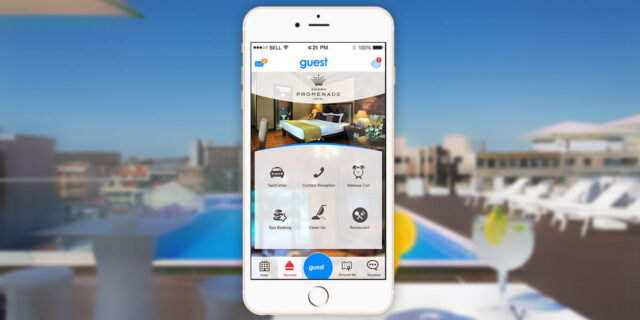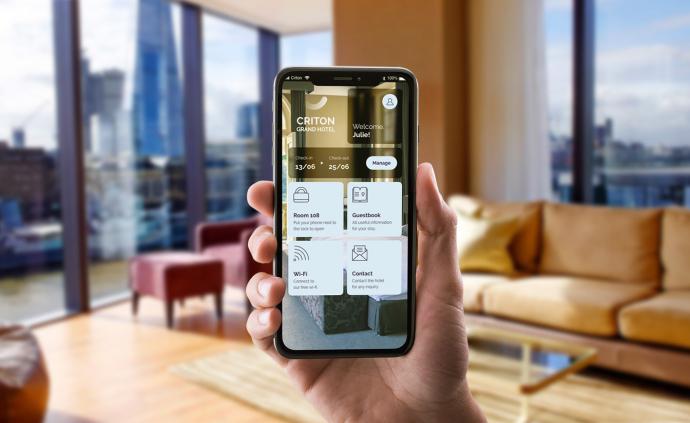As Agra continues to attract millions of tourists each year, the demand for efficient and personalized hospitality services is on the rise. Launching a mobile app tailored to the hospitality industry can enhance guest experiences, streamline operations, and drive customer loyalty. Here’s a step-by-step guide on how to successfully launch a mobile app for Agra’s hospitality industry.

Table of Contents
Toggle1. Conduct Market Research
Before developing the app, it’s essential to understand the local market and identify the specific needs of users. Consider the following:
- Target Audience: Define your target audience, which may include tourists, business travelers, and locals looking for dining or event options.
- Competitor Analysis: Research existing hospitality apps in Agra to identify their strengths and weaknesses. Look for gaps in the market that your app can fill.
- Gather Feedback: Conduct surveys or focus groups with potential users, including hotel guests and restaurant patrons, to understand their preferences and pain points.
2. Define Core Features
Based on your research, outline the key features your app should include. Some essential functionalities may include:
- User-Friendly Interface: Design an intuitive layout that makes navigation simple and enjoyable.
- Booking System: Allow users to book accommodations, restaurant reservations, or event spaces directly through the app.
- Personalized Recommendations: Use algorithms to provide tailored suggestions for dining, activities, and attractions based on user preferences.
- Loyalty Programs: Implement loyalty programs that reward frequent users with discounts or special offers.
- Push Notifications: Keep users informed about promotions, events, and personalized offers through push notifications.
- Customer Support: Provide in-app customer support options, such as chat or FAQs, to assist users with inquiries or issues.
3. Choose the Right Technology Stack
Selecting the appropriate technology stack is crucial for app performance and scalability. Consider the following components:
- Frontend Development: Use frameworks like React Native or Flutter for cross-platform compatibility (iOS and Android).
- Backend Development: Opt for robust backend technologies like Node.js, Python, or Ruby on Rails to handle user data securely.
- Database Management: Choose a reliable database solution, such as Firebase or MongoDB, for efficient data storage and retrieval.
- Payment Integration: Incorporate secure payment gateways to facilitate transactions, allowing users to pay for bookings and services seamlessly.
4. Design an Intuitive User Interface (UI)
An attractive and user-friendly interface is key to user satisfaction. Keep these design principles in mind:
- Simplicity: Use a clean and uncluttered layout that allows users to navigate easily.
- Visual Appeal: Incorporate high-quality visuals, reflecting the hospitality experience in Agra, such as images of attractions, food, and accommodations.
- Accessibility: Ensure the app is accessible to all users, including those with disabilities, by considering font sizes, color contrasts, and navigation ease.
5. Implement Security Measures
Given the sensitivity of user data, implementing robust security measures is crucial:
- Data Encryption: Protect user data with encryption to ensure privacy and security.
- Secure Payment Processing: Use secure payment gateways that comply with industry standards to safeguard financial transactions.
- User Authentication: Implement strong authentication processes, such as two-factor authentication, to prevent unauthorized access.
6. Testing and Quality Assurance
Thorough testing is essential to ensure the app functions correctly and meets user expectations. Conduct the following tests:
- Functional Testing: Verify that all features work as intended.
- Usability Testing: Gather feedback from real users to identify areas for improvement in the user experience.
- Performance Testing: Test the app’s performance under various conditions to ensure it can handle high traffic and transactions.
7. Create a Launch Strategy
Developing a launch strategy is crucial for the app’s success. Consider the following steps:
- App Store Optimization (ASO): Optimize the app’s listing on Google Play and the Apple App Store to improve visibility and attract downloads.
- Local Marketing Campaigns: Utilize local advertising channels, social media, and partnerships with hotels and restaurants to promote the app.
- Incentives for Early Users: Consider offering incentives such as discounts or exclusive offers for users who download and register within a specific time frame.
8. Gather Feedback and Iterate
After the app is launched, continue to gather feedback from users to identify areas for improvement. Regularly update the app to add new features, fix bugs, and enhance the overall user experience.
Conclusion
Launching a mobile app for Agra’s hospitality industry presents a valuable opportunity to enhance guest experiences and streamline operations. By understanding the market needs, defining essential features, and prioritizing user experience, you can create a powerful tool that benefits both customers and hospitality providers. With thoughtful design and continuous improvement, your app can become an integral part of Agra’s vibrant hospitality landscape.


No responses yet